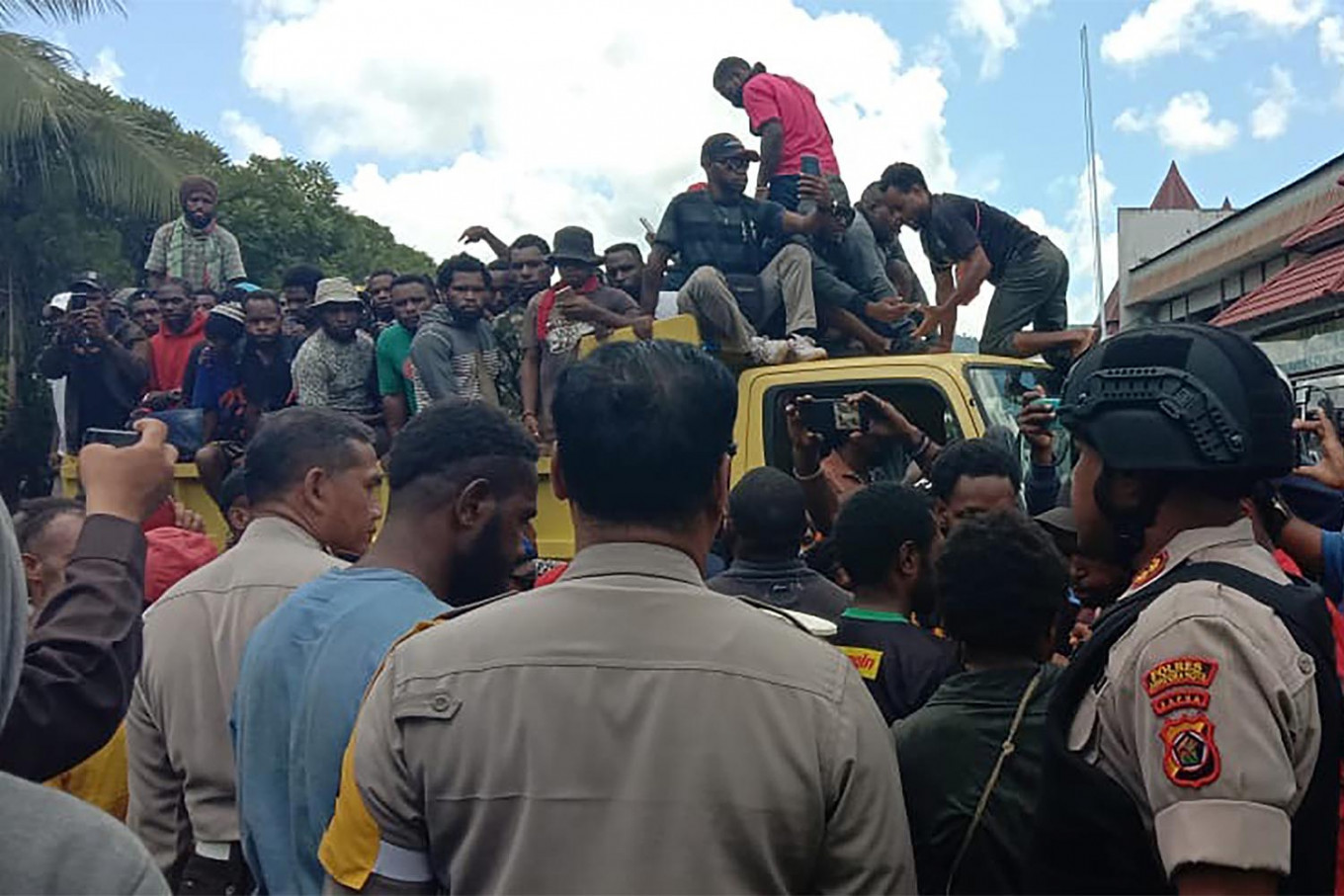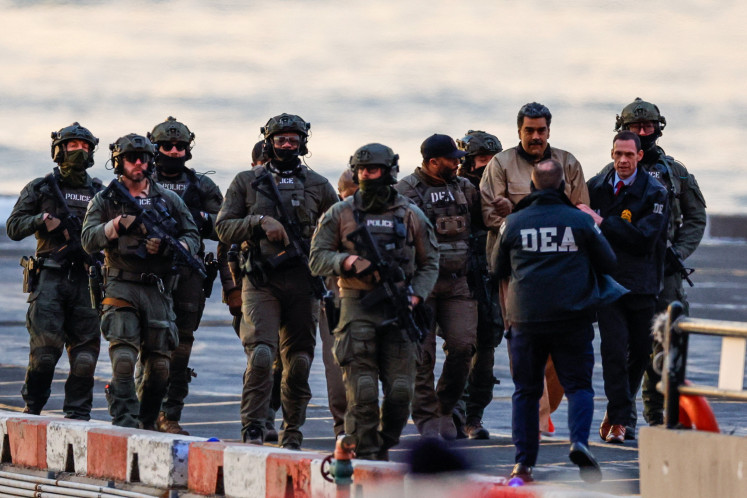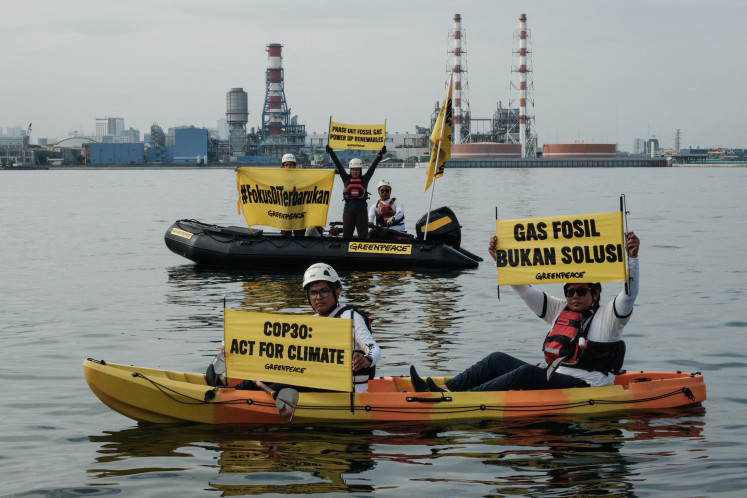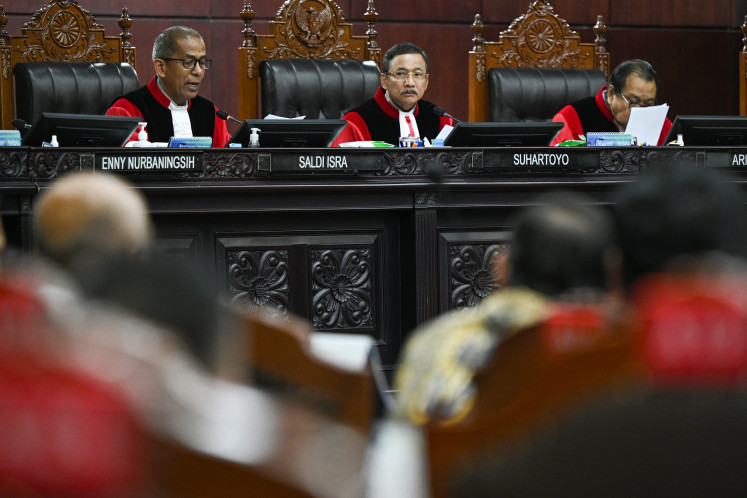Popular Reads
Top Results
Can't find what you're looking for?
View all search resultsPopular Reads
Top Results
Can't find what you're looking for?
View all search resultsInsecure security ops
The government has not been forthcoming about what it has done to protect the public and what its troops and the police have failed to anticipate.
Change text size
Gift Premium Articles
to Anyone
T
he normally busy town of Wamena in Papua’s highland regency of Jayawijaya is becoming deserted as thousands flee with their families. Some 10,000 people have registered with the military to be evacuated from Papua and almost 3,000 were airlifted out over the weekend.
Authorities say at least 33 people have been killed in riots, mostly civilians, including a few children. Apart from some victims reportedly killed during demonstrations last week, chilling reports mention other casualties, including some killed by fellow civilians and others who died from stab wounds or in fires during the riots, which were triggered by an alleged racist slur by a non-native Papuan teacher against a Papuan senior high school student.
The government again “temporarily” blocked the internet after student demonstrations broke out in August across the country following racial slurs against Papuan students in Surabaya, East Java, making it even harder to verify reports independently, let alone understand what caused the apparent mob violence. The town of Wamena is one of many in Papua and West Papua that have drawn Indonesians from other provinces to make a living. Their relative success has concerned researchers, officials and residents who cite growing inequality between native Papuans and non-native Papuans.
This, however, fails to explain the sudden ferocious attacks reportedly involving civilians - Wamena regency and its surrounding areas are still home to thousands of police and military personnel.
The security operation, which has been ongoing since late last year, is supposed to safeguard the area against alleged insurgents, and residents have emptied villages to seek security in makeshift shelters.
Volunteers have reported malnutrition leading to death among the evacuees, including infants, quite apart from civilians caught in the crossfire. Therefore, the current focus on allegations of Papuans targeting and killing non-Papuans might bemuse locals, many of whom have been exposed to insecurity for much of their lives, far from the spotlight.
The government has not been forthcoming about what it has done to protect the public and what its troops and the police have failed to anticipate. Medics, teachers and other professionals began fleeing Wamena following the reports of terror and killings.
National Police chief Gen. Tito Karnavian has blamed foreign-based activists for the rioting, and Pacific neighbor Vanuatu is a convenient target, with Indonesian diplomats blaming it for “sponsoring separatism” after the nation raised the issue of Papua at the latest United Nations General Assembly.
Yet, we know all too well that the answer to ending insecurity in Papua and West Papua lies with policymakers and the rest of the nation. Researchers have reiterated that there are unresolved fundamental issues, such as discrimination against and the marginalization of Papuans, and the continued targeting of alleged troublemakers among them, even as infrastructure projects intensify and funds pour in under President Joko “Jokowi” Widodo.
Leaders and other Indonesians have avoided demands for opening dialogue and resolving past human rights violations, hoping instead that the problems simply go away — so long as the wealth of resources in the resource-rich provinces does not.










